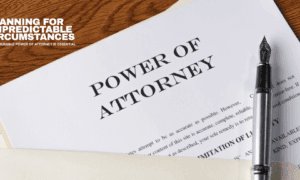Estate planning is a vital process that enables people and families to protect their possessions from being squandered, plan for their loved ones on how they will be maintained after their demise, avoid paying tax bills, and having their legacy left as they envision. Waiting until things become more serious may lead to negative consequences, so plan ahead and you will have the mental sense of satisfaction that everything is taken care of as you have the appropriate documentation.
What is Estate Planning?
Estate planning is a relative term which involves arranging the delivery of an individual’s financial and material possessions to the integrates he or she selects upon their death or during ill-health.
The process passes through the distribution of property, investments, and other assets with the aim of minimizing tax and by the same doing, seeing to it that the individual’s wishes are honored.
It involves preparing written documents that will carry out the plan to distribute one’s assets, care for one’s heirs, and determine the distribution of one’s estate in the event of one’s demise.
Importance of estate planning
Having an well-designed estate planning services is crucial for several reasons
- Providing for Loved Ones: Estate planning helps you to minimize uncertainties you might leave behind after your death, making it easier for your family members, especially your spouse, children, or dependents, to regain financial security.
- Minimizing Taxes: Appropriate estate planning tools could help you in the minimization of tax hassle including estate taxes, inheritance taxes, and other liabilities of estate tax which in return can help you in preserving more of your wealth for your bereaved.
- Avoiding Probate: Estate plan, constructed properly, simplifies and streamlines the estate administration and, in the end, expedites and makes inexpensive passing of your assets to your heirs.
- Preserving Your Legacy: Through estate planning solutions, your assets, philanthropic gifts, and other aspects of your legacy will be carefully outlined so that the final disposition is in line with your values and wishes.
Common Estate Planning Goals
When developing an estate plan, individuals and families often have several goals in mind, including:
- Providing for Loved Ones: Making sure that spouses and children dependent on the working immigrant are well cared for for their current financial needs and have a secure future.
- Minimizing Taxes: Promoting ways to diminish the burden brought by estate taxes, inheritance taxes, and other tax liabilities, consequently coupling the efforts to safeguard more of your wealth for the sake of the heirs.
- 3. Supporting Charitable Causes: Embedding philanthropy by including charitable establishments or donating a part of your estate to support causes that you believe in.
- 4. Avoiding Probate: A comprehensive plan covering how you will organize your assets and your estate so that your beneficiaries can have them transferred to them more timely and efficiently and in a way that the process of putting them through probate court will.
- Preserving Family Harmony: By clearly drawing your intentions, you can quickly minimize the conflict or disputes among the family members concerned with assets, though there might be and would be any problem.
The Role of Family Offices and Financial Advisors
Although the estate planning services may be quite challenging, an experienced family office and a financial advisor can be of enormous value.
Family offices and financial advisors can assist with various aspects of estate planning, including Family offices and financial advisors can assist with multiple aspects of estate planning, including:
- Asset Management: They will help you manage your assets, investments, financial accounts and everything else you would like to leave behind for your beneficiaries so that none of these will hold you back as you move on from this world.
- Tax Planning: Suggest strategies that minimize tax liabilities and the methods of legal estate planning to maximise your estate’s value to your heirs.
- Trust and Will Preparation: Helps in preparing and overseeing trusts, estates, and other legal documents that ensure that your intentions use your assets.
- Philanthropic Planning: Offers advice on charitable giving mechanisms and obtaining the legal approvals to include authorized charitable goals in your will.
- Family Governance: Decision-making and communicative assistance to all family members to make a single-minded and coordinated outlook on estate planning.
By knowing the basic concepts of estate planning services and leveraging professional aid whenever needed, you can take another step towards the future by securing your legacy, ensuring that those you love are provided for, and reaching your ultimate economic fulfilment.
FAQs
Who needs estate planning?
Asset distribution that conforms to one’s wishes after death or in case of incapacitation is something that no one owning valuables, stocks, or land or making plans about bequests should neglect. This group includes folks from any age and economic situation; those desirous of ensuring their own legacies and the stability of their family members are included in this group.
What documents are included in an estate plan?
A comprehensive estate plan typically includes several fundamental documents, such as A comprehensive estate plan typically includes several fundamental documents, such as:
– Will: A binding document detailing how your properties and assets will be allocated after your mourning period.
– Trust(s): Entities that can own and administrate your commodities, helping you with taxation and avoiding probate.
– Power of Attorney: A document that gives someone permission to do the things below for you, like the legal guardians of their children, in other words, if you cannot make decisions for yourself.
– Healthcare Directives: Medical documents covering your needs in this regard and stating your preferences for treatment and end-stage care.
What happens if I die without an estate plan?
If you die and do not have an estate plan prepared, your assets will be subject to rules about whom your assets belong to under the intestacy lines of your state. These laws deliberate the procedure of how your property will be divided among your heirs, which may not conform with your willing thoughts or the interests of your loved ones. Aside from this, the estate will be susceptible to many hustles during this time, such as lengthy and costly probate proceedings.
How often should I review my estate plan?
They say that every once in a while, it’s a good idea to revisit your estate plan and make edits if need be, especially after significant life events like marriage, divorce, having a kid, and getting some new property, or when changes in the tax rules come into effect, or if you have personal changes. Experts in this field tend to recommend that you revise your estate plan every three to five years or certainly whenever your life goes through some significant changes.
Do I need a financial advisor to create an estate plan?
A DIY approach to developing a will or estate may be viable, but a qualified financial adviser or lawyer specialising in estate planning will significantly assist in obtaining unique and professional expertise. These professionals are the good ones who can help make sure your estate plan is precisely suited to your needs, complies with the law, and brings your assets that account for most of your beneficiaries.



































